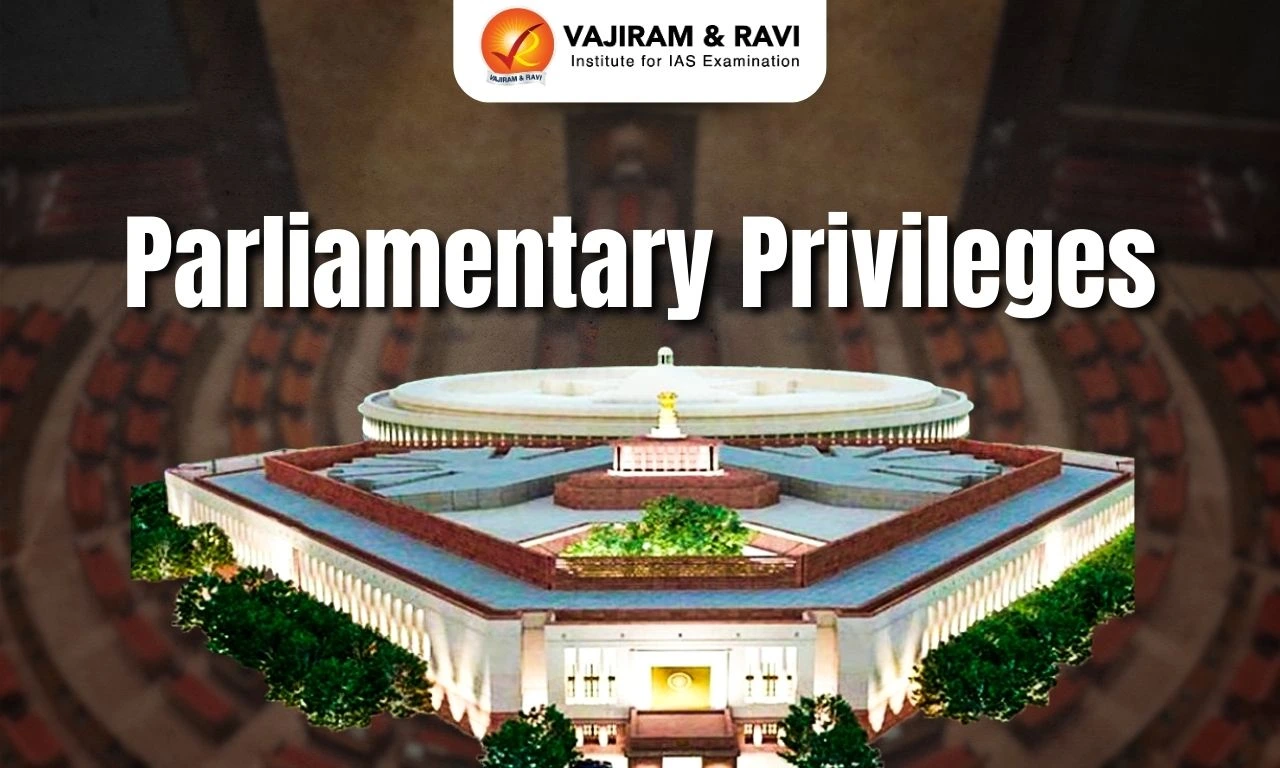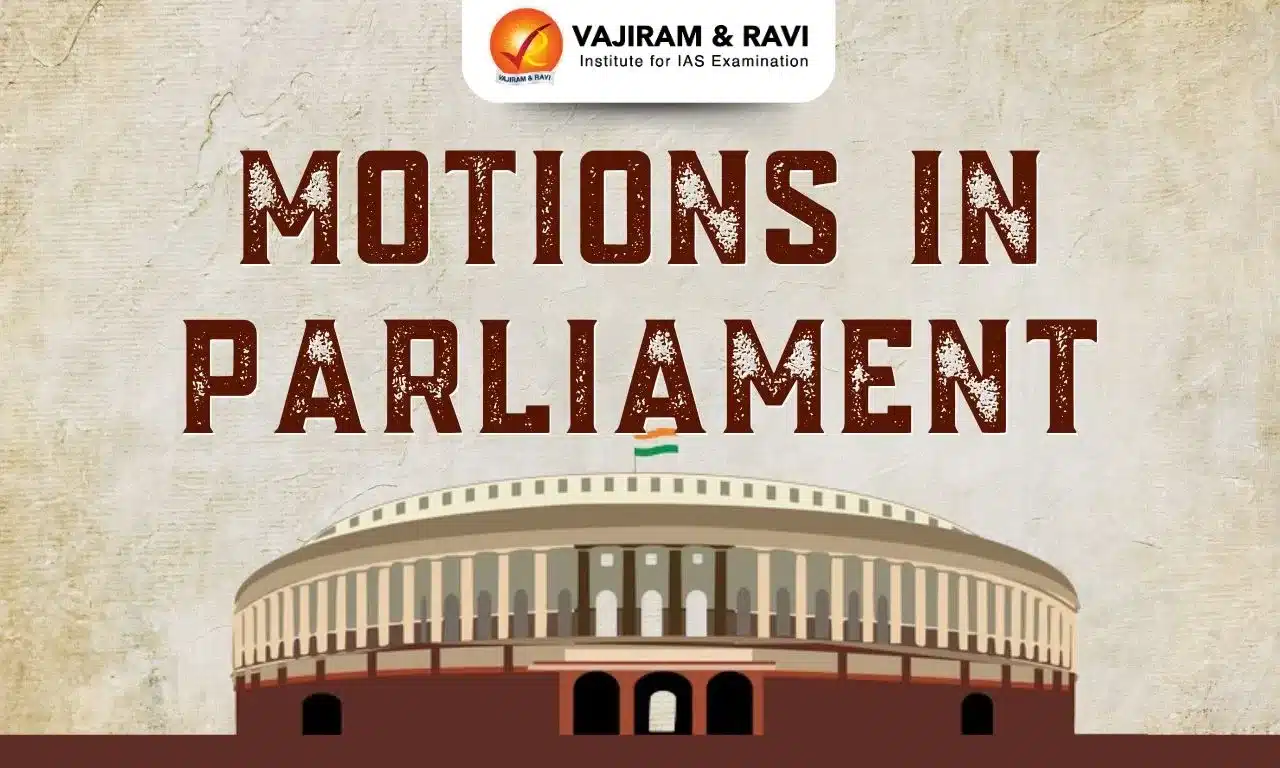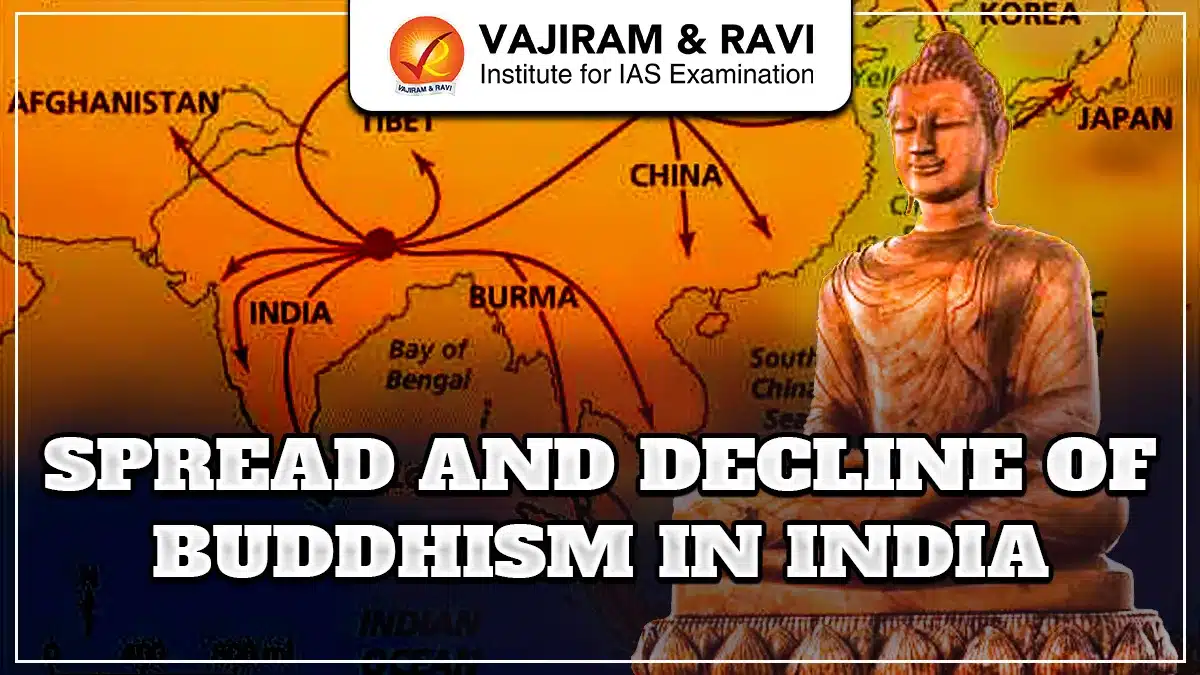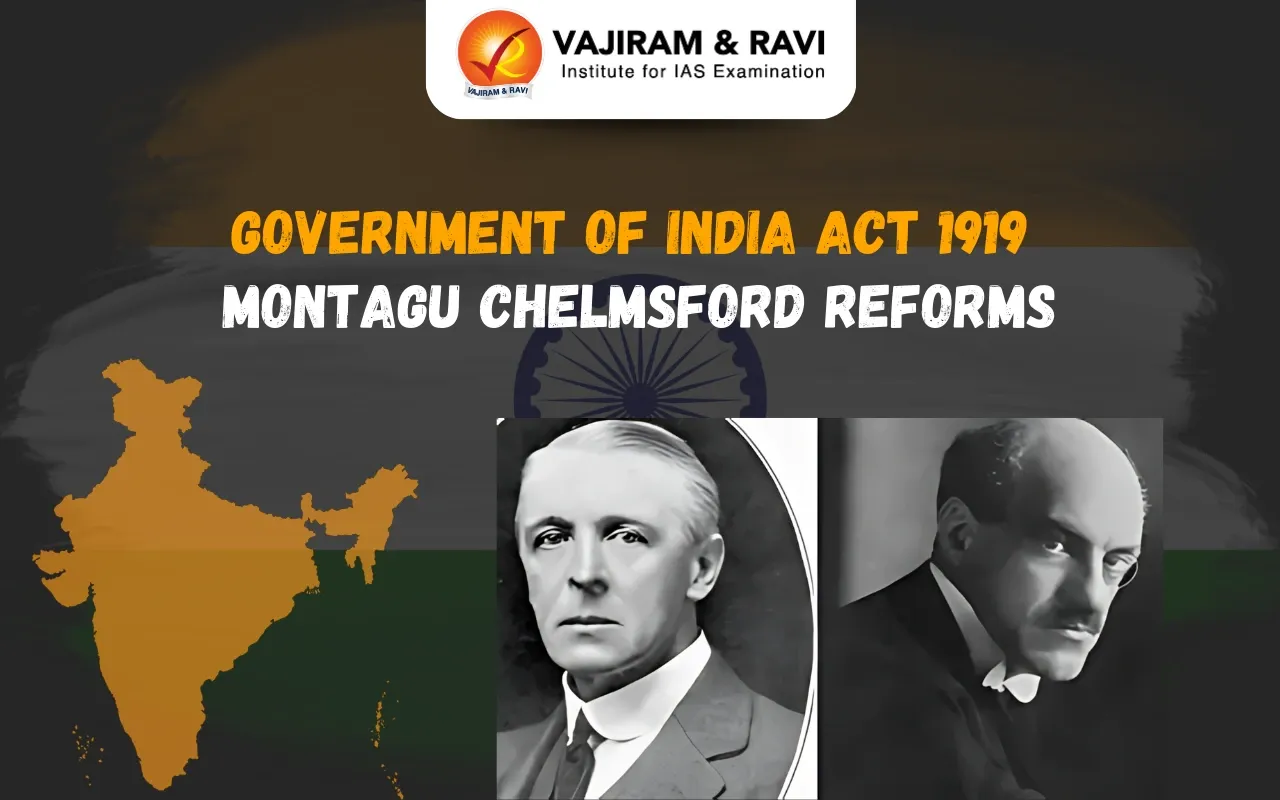What is the meaning of Parliamentary Privileges?
- Parliamentary privileges are the rights and immunities enjoyed by members of Parliament (MPs) in India to enable them to discharge their duties and functions without interference or intimidation.
- Sources: These privileges are derived from the Constitution of India, parliamentary conventions, laws made by the Parliament, rules of Lok sabha and Rajya sabha, and judicial interpretations.
- Constitutional Provisions: Parliamentary privileges are defined in Article 105 of the Indian Constitution. The members of Parliament are exempted from any civil or criminal liability for any statement made or act done in the course of their duties.
- Co-terminus with membership: The privileges are claimed only when the person is a member of the house. As soon as he ends to be a member, the privileges are said to be called off.
- These privileges are essential so that the proceedings and functions can be made in a disciplined and undisturbed manner.
- In India, the privileges of members of Parliament are specified in the Constitution, the Rules of Procedure and Conduct of Business in Lok Sabha, and the Rules of Procedure and Conduct of Business in Rajya Sabha.
- It is important to note that parliamentary privileges are not absolute and are subject to certain limits. For example, MPs are expected to use their privileges responsibly and not abuse them for personal gain.
What are the constitutional provisions related to parliamentary privileges?
According to the Constitution of India, Articles 105 and 122 outline the privileges of Parliament, while Articles 194 and 212 pertain to the privileges of state governments.
- Article 105: There shall be freedom of speech in Parliament. No member of Parliament shall be liable to any proceedings in any court in respect of anything said or any vote given by him in Parliament or any committee thereof.
- Article 122: The validity of any proceedings in Parliament shall not be called in question in court on the ground of any alleged irregularity of procedure.
- Article 194: There shall be freedom of speech in the State Legislature. No member of the State Legislature shall be liable to any proceedings in any court in respect of anything said or any vote given by him in the State Legislature or any committee thereof.
- Article 212: The validity of any proceedings in the State Legislature shall not be called in question in court on the ground of any alleged irregularity of procedure.
How are the parliamentary privileges classified?
Parliamentary privileges are intended to protect the independence and integrity of the legislative process and to allow lawmakers to speak and act freely without fear of reprisal or legal consequences.
- Individual Privileges: Individual privileges refer to the rights and immunities enjoyed by members of the Indian Parliament and State Legislature to enable them to perform their duties without fear of interference or prosecution.
- Collective Privileges: Collective privileges in India refer to the rights and immunities that are enjoyed by both Houses of the Indian Parliament and State Legislature as a whole, as well as their members and officers.
| Individual Privileges | Collective Privileges |
|
|
What is the significance of Privileges in the Indian Parliament?
- Parliamentary privileges are an important aspect of the legislative process, as they help to ensure the independence and integrity of the legislative body. These privileges are intended to protect the ability of lawmakers to speak and act freely.
- By providing immunity from arrest and legal process, parliamentary privileges allow members of parliament to carry out their duties and responsibilities without fear of intimidation or interference.
- In addition, parliamentary privileges such as the privilege of confidentiality and the privilege of access allow members of parliament to obtain and share information that may be crucial to their decision-making processes.
- Overall, parliamentary privileges are an important part of the checks and balances that help to safeguard the independence and integrity of democratic institutions and ensure that they can function effectively.
What are the challenges and issues pertaining to Parliamentary Privileges?
There are several challenges associated with parliamentary privileges in India. Some of these challenges include
- Scope of privileges: One challenge is determining the scope and limits of parliamentary privileges. While these privileges are intended to protect the independence and integrity of the legislative process, they can also shield lawmakers from accountability and scrutiny.
- Conflict with constitutional principles: Parliamentary privileges may sometimes conflict with other constitutional principles, such as equality before the law. For example, the privilege of immunity from arrest and legal process may be seen as giving members of parliament special privileges that are not available to other citizens.
- Misuse of privileges: There have been instances where parliamentary privileges have been misused by lawmakers in India. For example, some lawmakers have used their freedom of speech privilege to make inflammatory or offensive comments or false or baseless allegations.
- Lack of transparency: The process for claiming and enforcing parliamentary privileges in India can be opaque and lacks transparency. This can make it difficult to hold lawmakers accountable for their actions and undermine public trust in the legislative process.
- Inadequate oversight: There is a lack of adequate oversight and mechanisms for enforcing parliamentary privileges in India. This can make it difficult to hold lawmakers accountable for abuses of these privileges and can lead to a lack of confidence in the legislative process.
What is a Breach of Parliamentary Privilege, and when does it occur?
A breach of privilege in the Indian Parliament refers to a violation of the rights and immunities of the Parliament or its members.
- Breach of privilege can include impeding the work of parliament, obstructing a member from carrying out their duties, or disclosing confidential information discussed in parliament without authorization.
- Breaches of privilege are considered a serious offense and can result in disciplinary action being taken against the offending member or members.
When any of rights and immunities such as freedom from arrest or freedom of speech is disregarded or attacked, the offence is called a breach of privilege and is punishable under the law of Parliament.
What are some of the important judgments related to parliamentary privileges?
- No Parliamentary immunity for vandalism: The Supreme Court recently observed that lawmakers cannot indulge in criminal acts on the Parliament or Assembly floors and then take cover behind the right to free speech.
- K Anandan Nambiar case 1951: The Supreme Court of India held that a Member of Parliament could claim no special status higher than that of an ordinary citizen and is as much liable to be arrested, detained, or questioned even during the session.
- State of Kerala Vs. K. Ajith and Others 2021: The Supreme Court has observed that “privileges and immunities are not gateways to claim exemptions from the general law of the land, particularly as in this case, the criminal law which governs the action of every citizen.”
How can parliamentary privileges be used effectively?
Parliamentary privileges are an important aspect of the legislative process, as they help to ensure the independence and integrity of the legislative body. To use these privileges appropriately, lawmakers should follow a few best practices:
- Use privileges responsibly: Members of parliament should use their privileges responsibly and should not abuse them for personal or political gain. This means avoiding using privileges to make inflammatory or offensive comments or false or baseless allegations.
- Respect the rights of others: Members of parliament should respect the rights of others and should not use their privileges to infringe on the rights of others. This includes avoiding using privileges to harass or intimidate others or to engage in discriminatory or exclusionary behavior.
- Be transparent: Members of parliament should be transparent in their use of privileges and should be open and accountable for their actions. This means being open and honest about the reasons for claiming privileges and being willing to justify their use when necessary.
- Follow parliamentary procedures: Members of parliament should follow established parliamentary procedures when claiming and enforcing privileges. This includes respecting the rules and standing orders regulating the procedure of Parliament, and adhering to the principles of impartiality and fairness.
Overall, by following these best practices, members of parliament can use their privileges appropriately and in a way that serves the best interests of the institution and the public. This can help to ensure that the legislative process is independent, transparent, and accountable and that it serves the needs and interests of the community.
How do other countries use parliamentary privileges effectively?
Australia: In Australia, the privileges of members of parliament are codified by Parliamentary Privileges Act 1987, and are subject to review by the courts. This helps to ensure that the privileges are used in a manner that is consistent with the rule of law and that they are not used to restrict the rights of citizens.
New Zealand: In New Zealand, The Parliamentary Privilege Act 2014 affirms and clarifies the nature, scope and extent of the privileges enjoyed by the House which are subject to review and amendment by the House itself. This ensures that the privileges are used in a manner that is consistent with the will of the House and that they are responsive to the changing needs of the legislature.
Last updated on February, 2026
→ UPSC Notification 2026 is now out on the official website at upsconline.nic.in.
→ UPSC IFoS Notification 2026 is now out on the official website at upsconline.nic.in.
→ UPSC Calendar 2026 has been released.
→ UPSC Final Result 2025 is expected to be released in the second week of April 2026.
→ Check out the latest UPSC Syllabus 2026 here.
→ Join Vajiram & Ravi’s Interview Guidance Programme for expert help to crack your final UPSC stage.
→ UPSC Mains Result 2025 is now out.
→ UPSC Prelims 2026 will be conducted on 24th May, 2026 & UPSC Mains 2026 will be conducted on 21st August 2026.
→ The UPSC Selection Process is of 3 stages-Prelims, Mains and Interview.
→ Prepare effectively with Vajiram & Ravi’s UPSC Prelims Test Series 2026 featuring full-length mock tests, detailed solutions, and performance analysis.
→ Enroll in Vajiram & Ravi’s UPSC Mains Test Series 2026 for structured answer writing practice, expert evaluation, and exam-oriented feedback.
→ Join Vajiram & Ravi’s Best UPSC Mentorship Program for personalized guidance, strategy planning, and one-to-one support from experienced mentors.
→ Check UPSC Marksheet 2024 Here.
→ UPSC Toppers List 2024 is released now. Shakti Dubey is UPSC AIR 1 2024 Topper.
→ Also check Best UPSC Coaching in India
Parliamentary Privileges FAQs
Q1. What is the punishment in case of breach of privilege or contempt of the House?+
Q2. Are the parliamentary privileges codified in India? +
Q3. What is the difference between breach of privilege and contempt of the House?+














